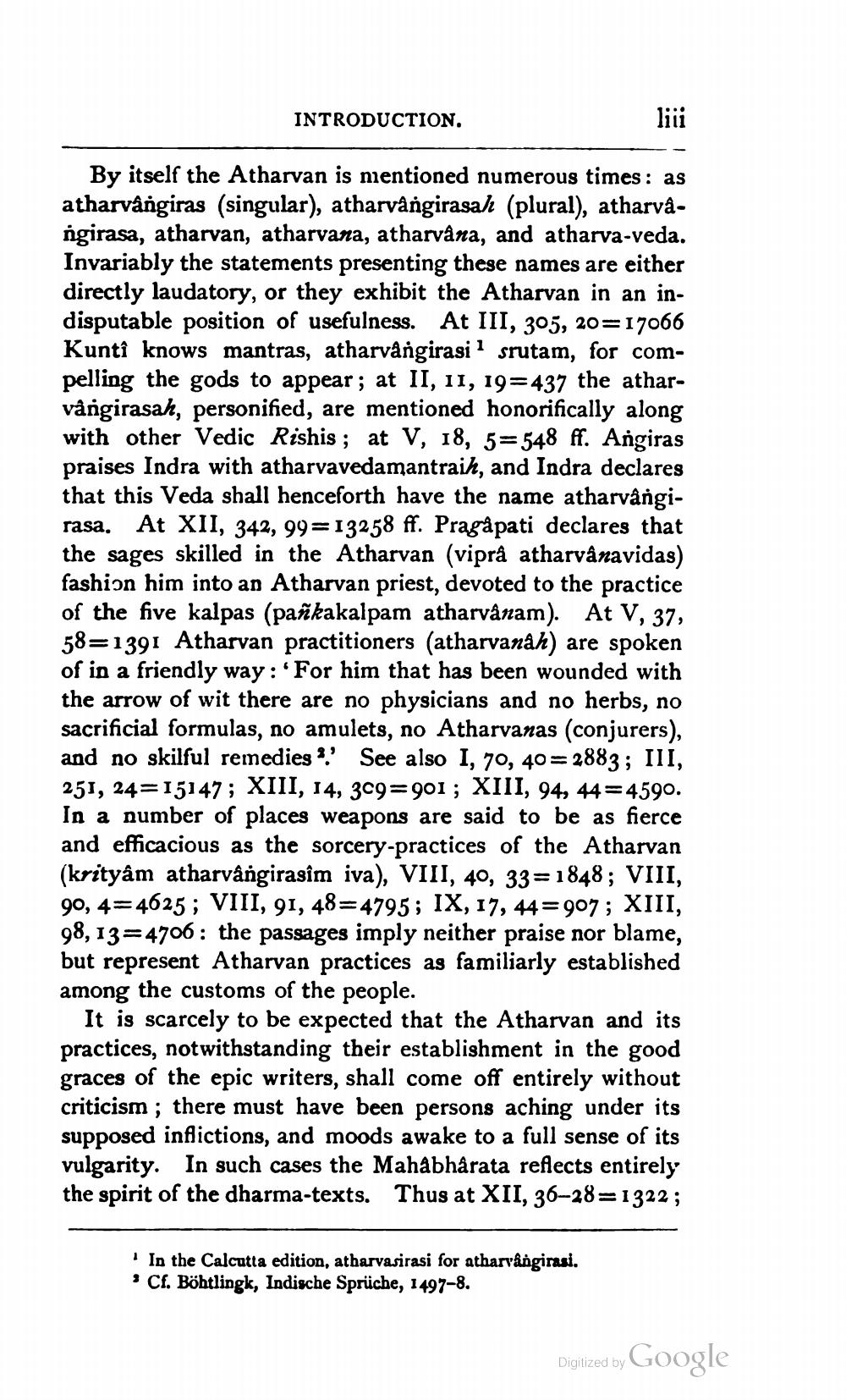________________
INTRODUCTION.
By itself the Atharvan is mentioned numerous times: as atharvangiras (singular), atharvangirasah (plural), atharvangirasa, atharvan, atharvana, atharvana, and atharva-veda. Invariably the statements presenting these names are either directly laudatory, or they exhibit the Atharvan in an indisputable position of usefulness. At III, 305, 20=17066 Kuntî knows mantras, atharvangirasisrutam, for compelling the gods to appear; at II, 11, 19=437 the atharvårigirasah, personified, are mentioned honorifically along with other Vedic Rishis ; at V, 18, 5=548 ff. Angiras praises Indra with atharvavedamantraih, and Indra declares that this Veda shall henceforth have the name atharvangirasa. At XII, 342, 99=13258 ff. Pragåpati declares that the sages skilled in the Atharvan (viprå atharvânavidas) fashion him into an Atharvan priest, devoted to the practice of the five kalpas (pañkakalpam atharvânam). At V, 37, 58=1391 Atharvan practitioners (atharvanâh) are spoken of in a friendly way: 'For him that has been wounded with the arrow of wit there are no physicians and no herbs, no sacrificial formulas, no amulets, no Atharvanas (conjurers), and no skilful remedies *.' See also I, 70, 40=2883; III, 251, 24=15147; XIII, 14, 309=901; XIII, 94, 44=4590. In a number of places weapons are said to be as fierce and efficacious as the sorcery-practices of the Atharvan (krityam atharvangirasîm iva), VIII, 40, 33= 1848 ; VIII, 90, 4=4625; VIII, 91, 48=4795; IX, 17, 44= 907; XIII, 98,13=4706: the passages imply neither praise nor blame, but represent Atharvan practices as familiarly established among the customs of the people.
It is scarcely to be expected that the Atharvan and its practices, notwithstanding their establishment in the good graces of the epic writers, shall come off entirely without criticism ; there must have been persons aching under its supposed infictions, and moods awake to a full sense of its vulgarity. In such cases the Mahabharata reflects entirely the spirit of the dharma-texts. Thus at XII, 36–28=1322 ;
In the Calcutta edition, atharvasirasi for atharvangirasi. Cf. Böhtlingk, Indische Sprüche, 1497-8.
Digized by Google
Digitized by




